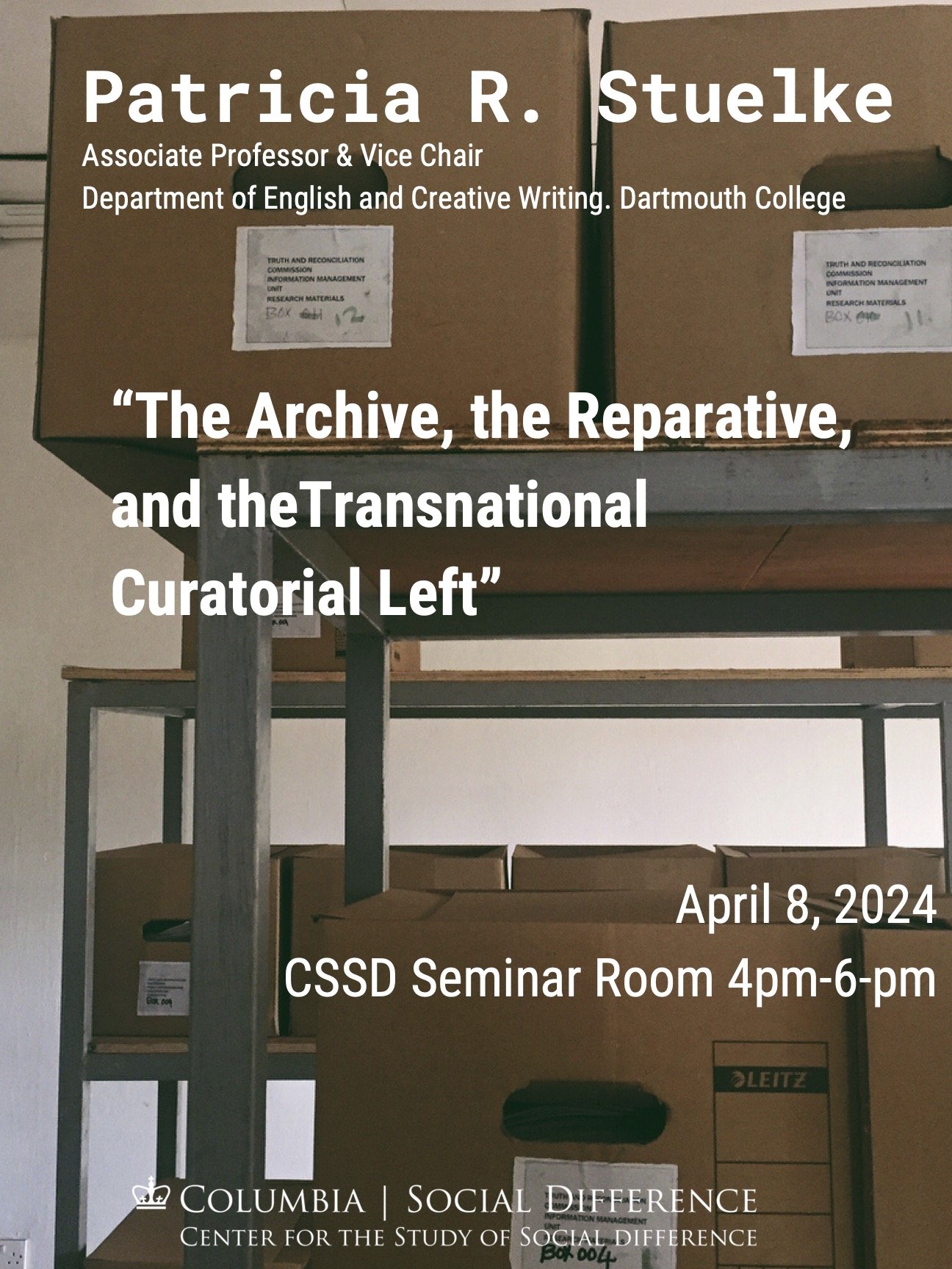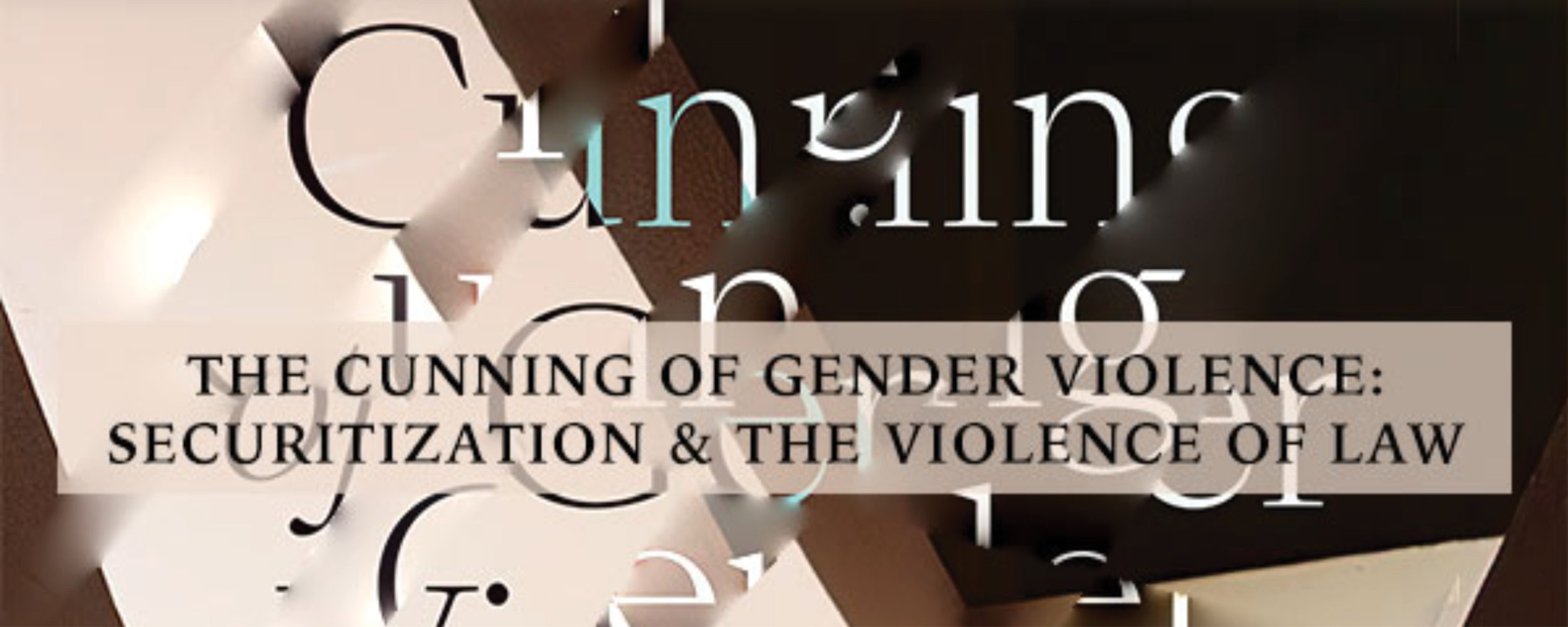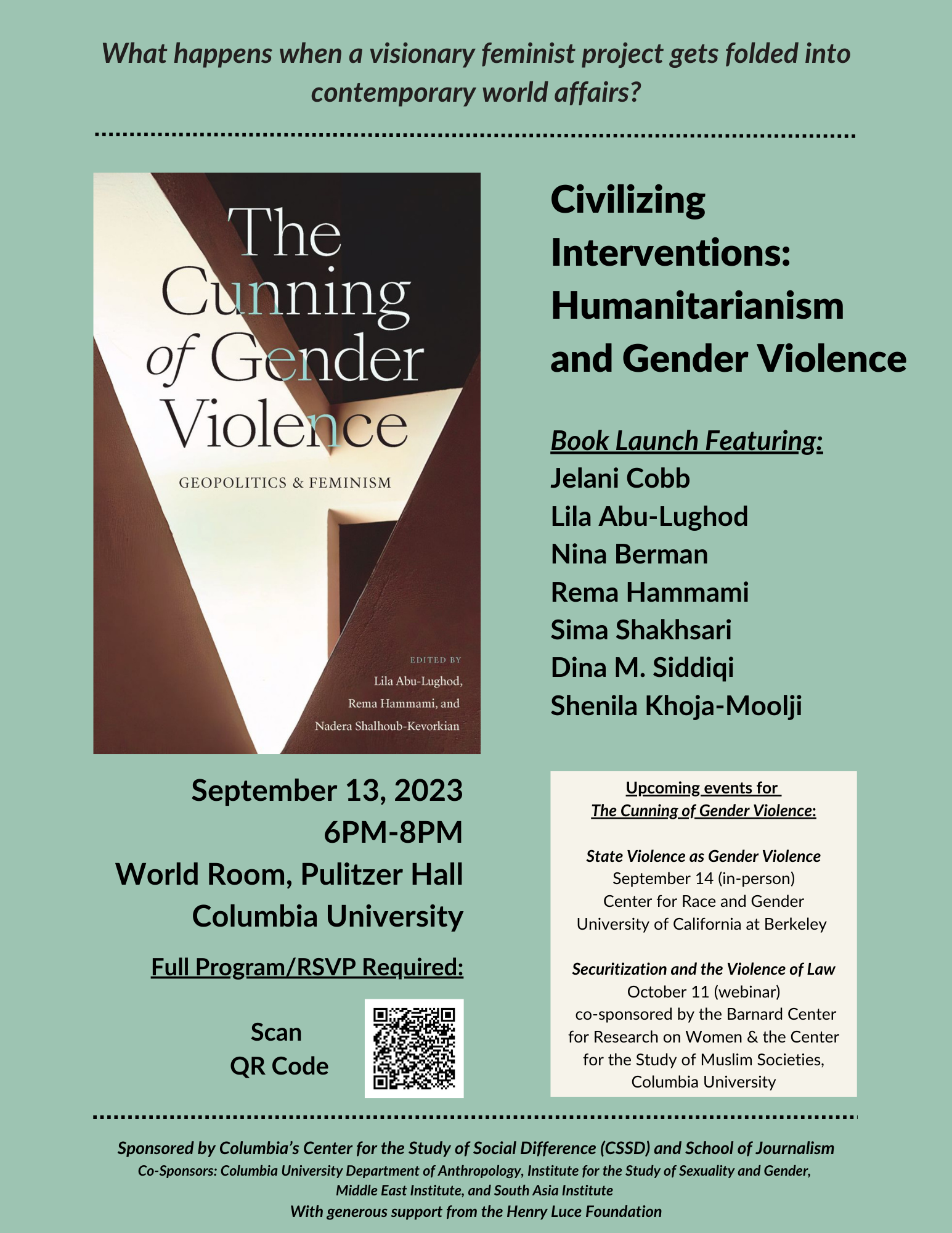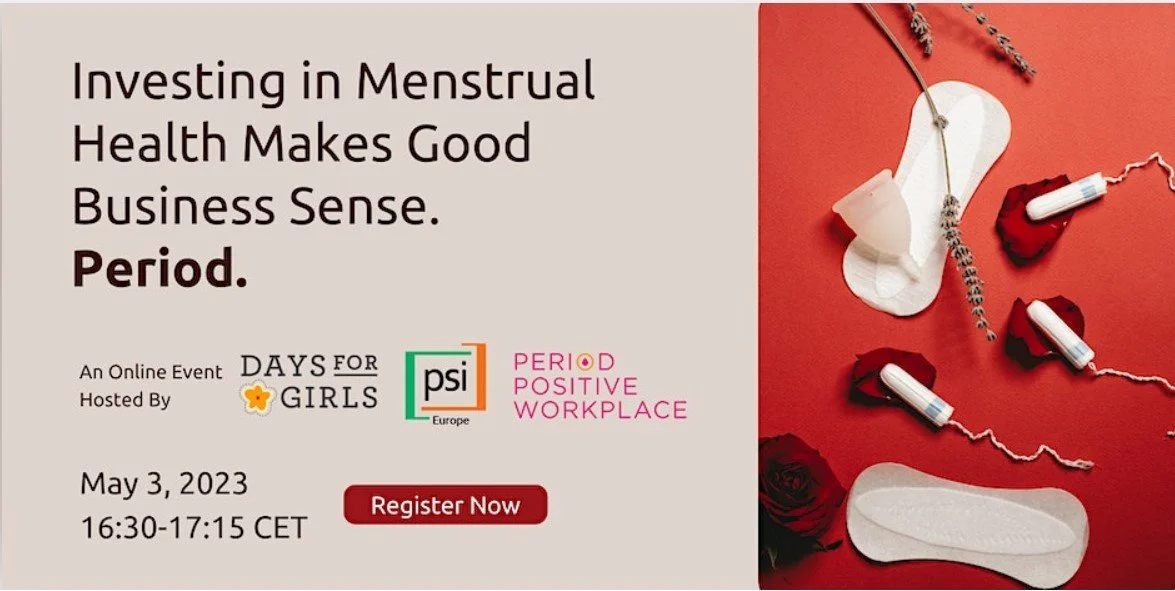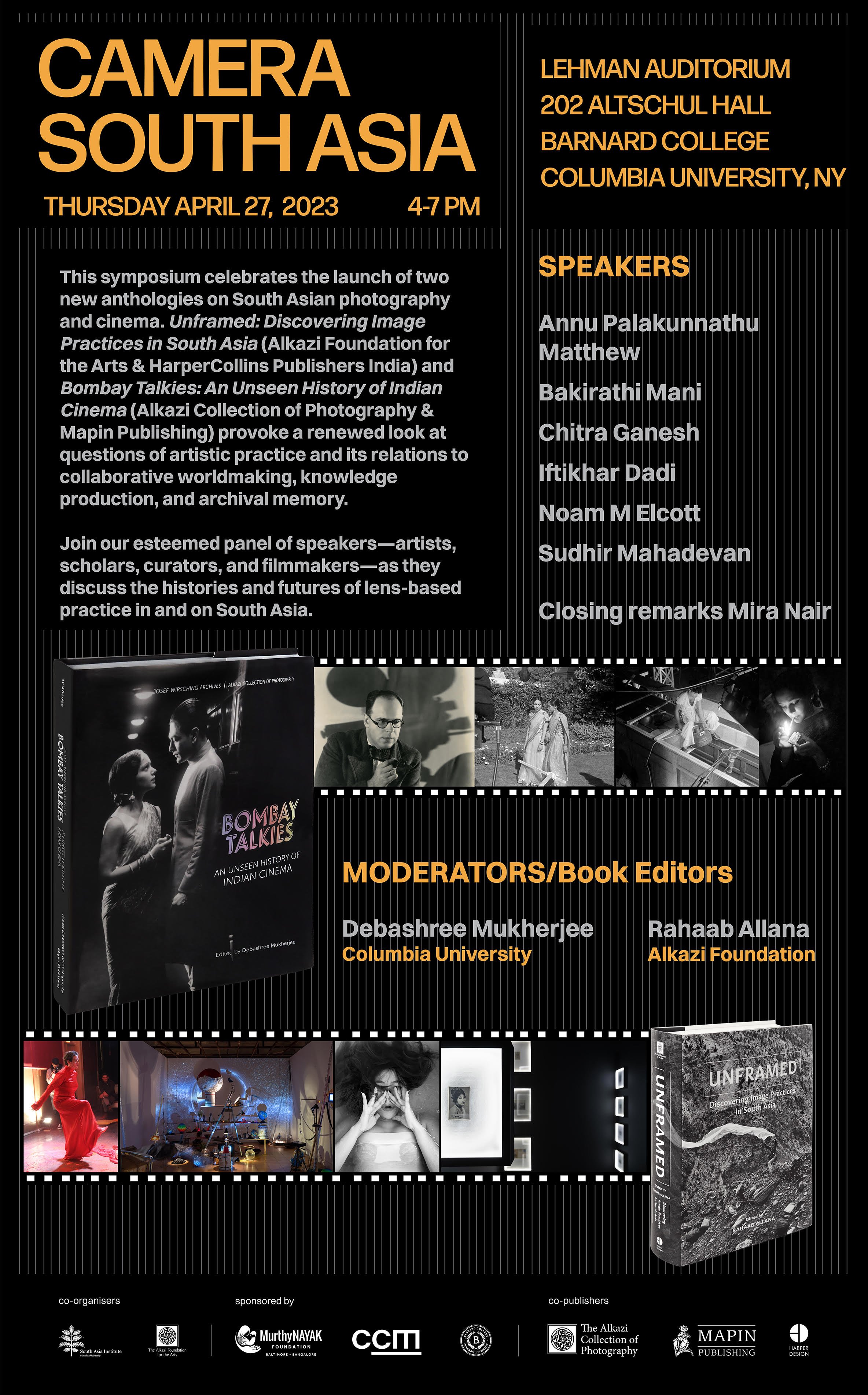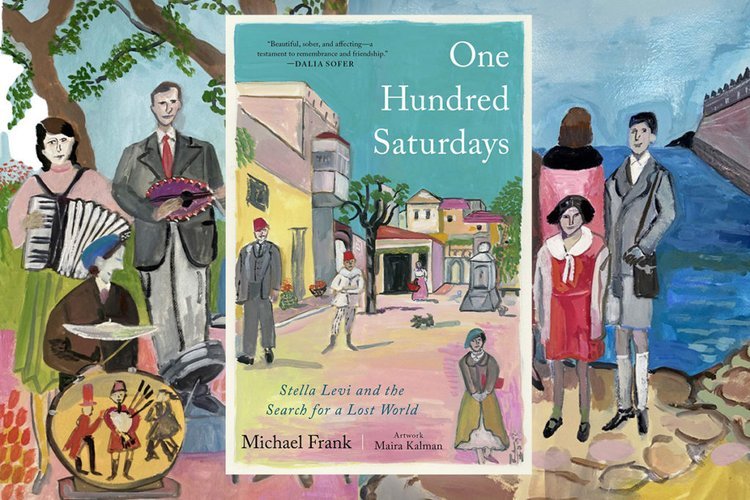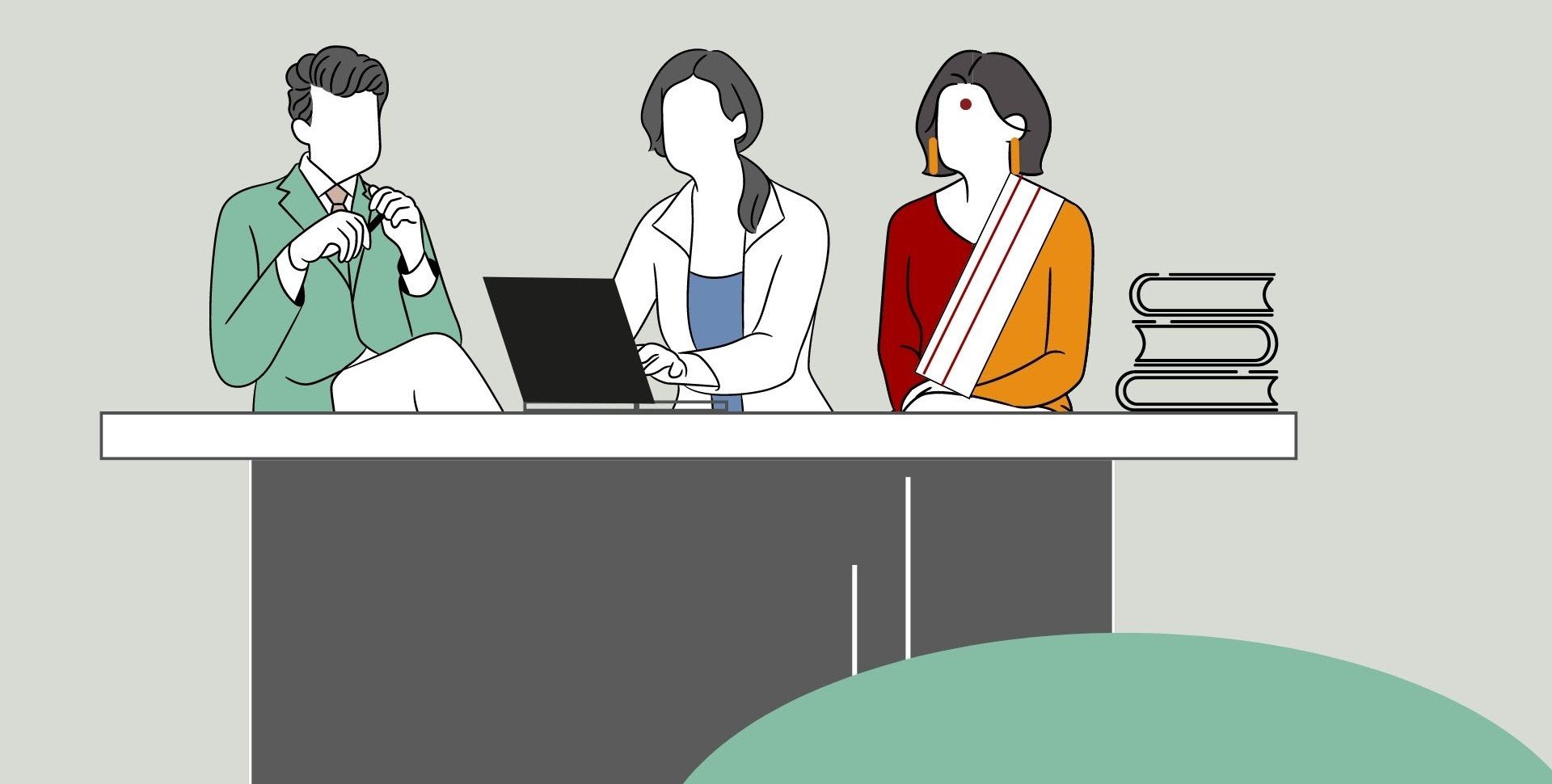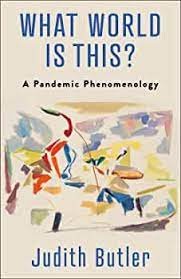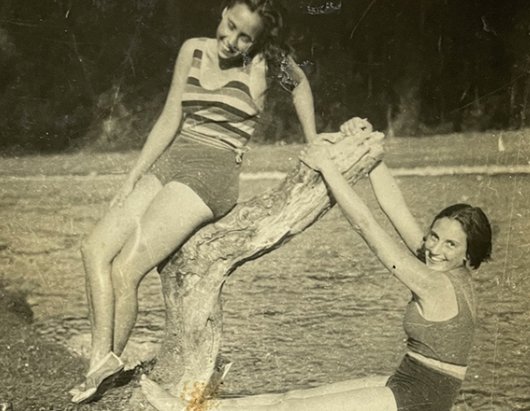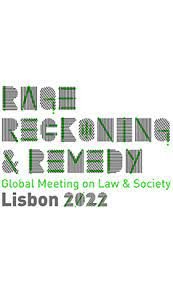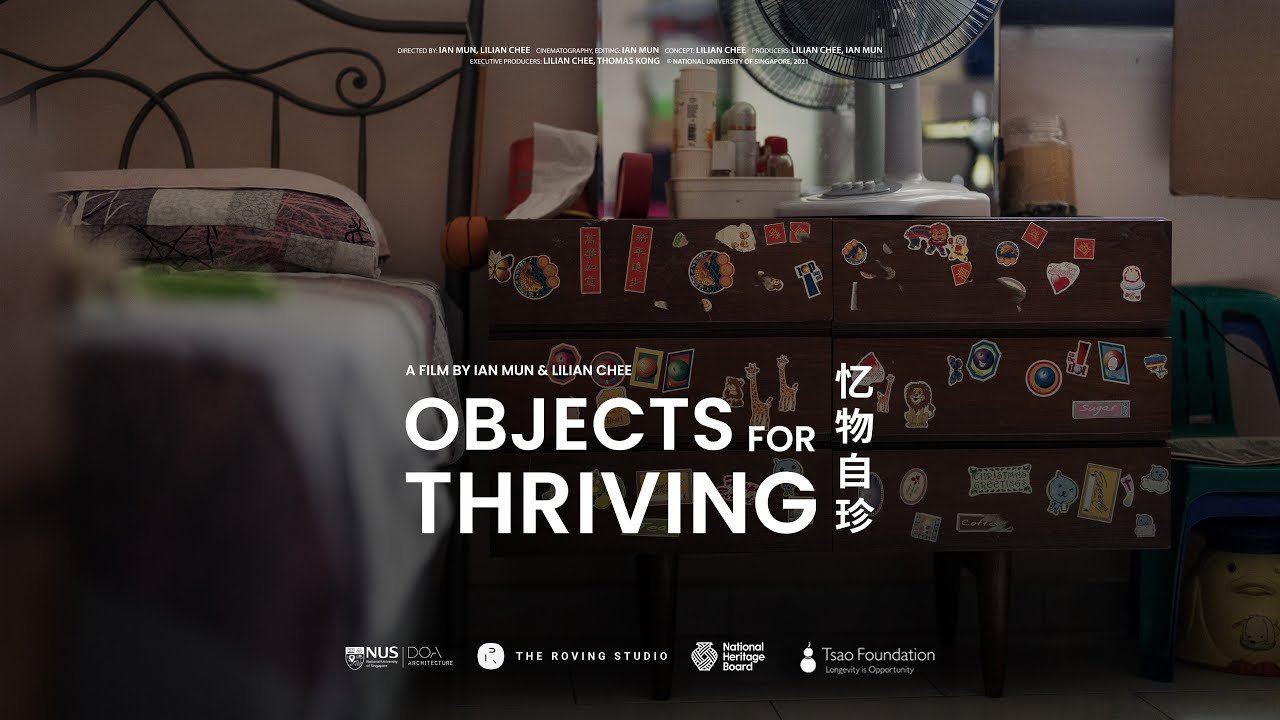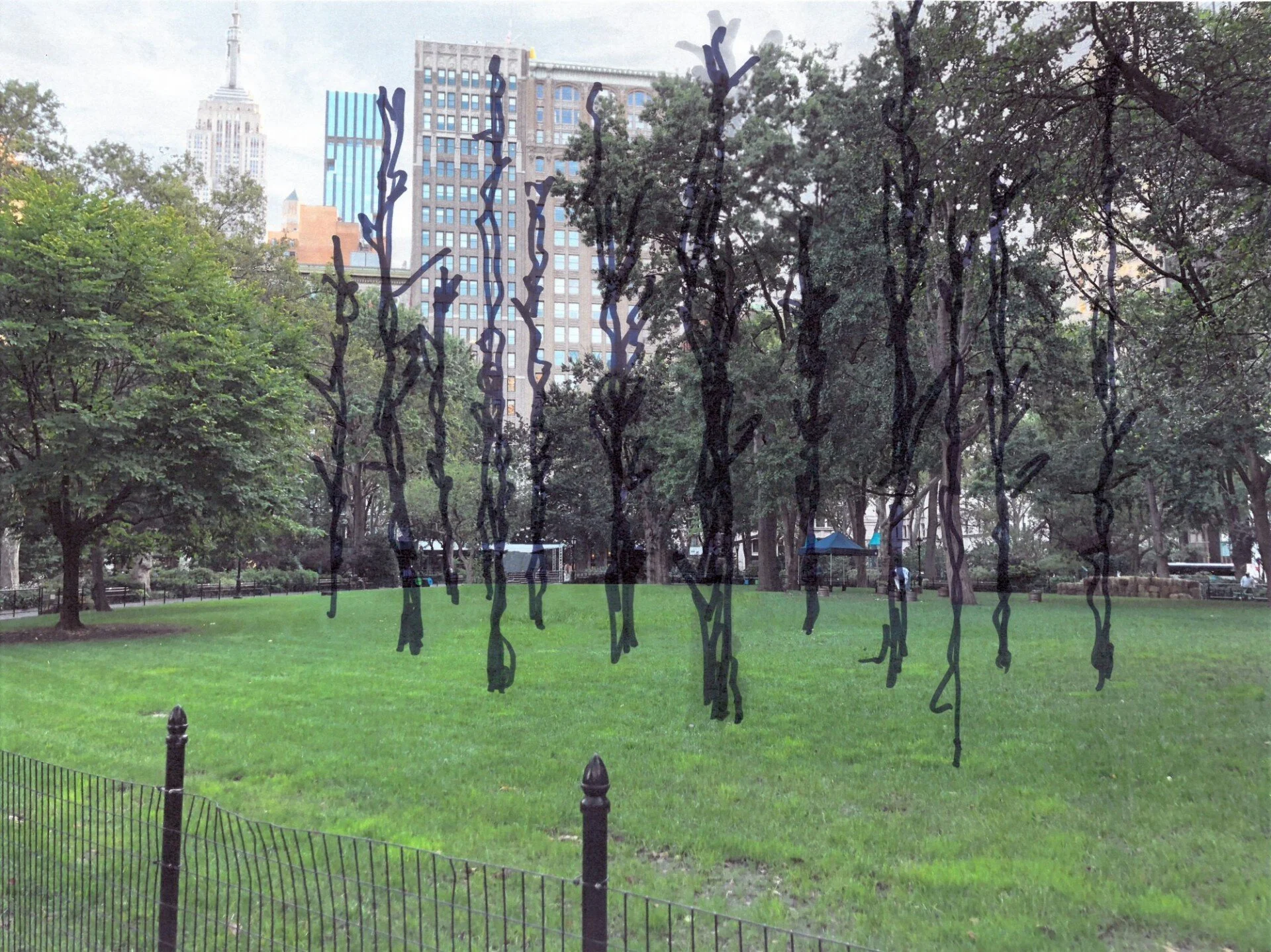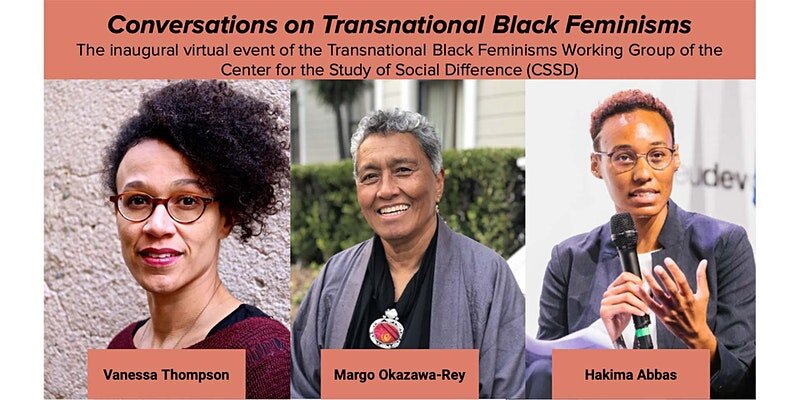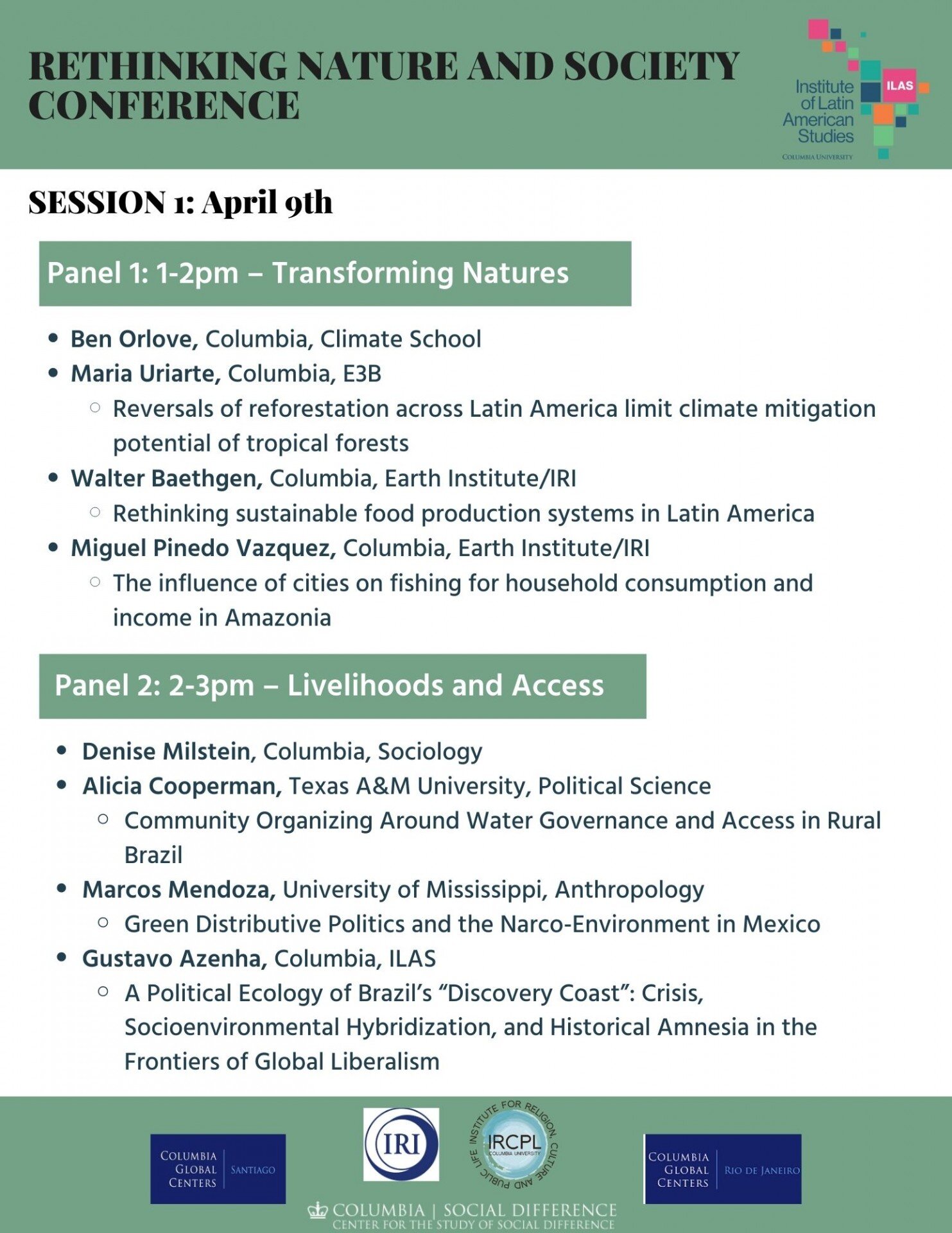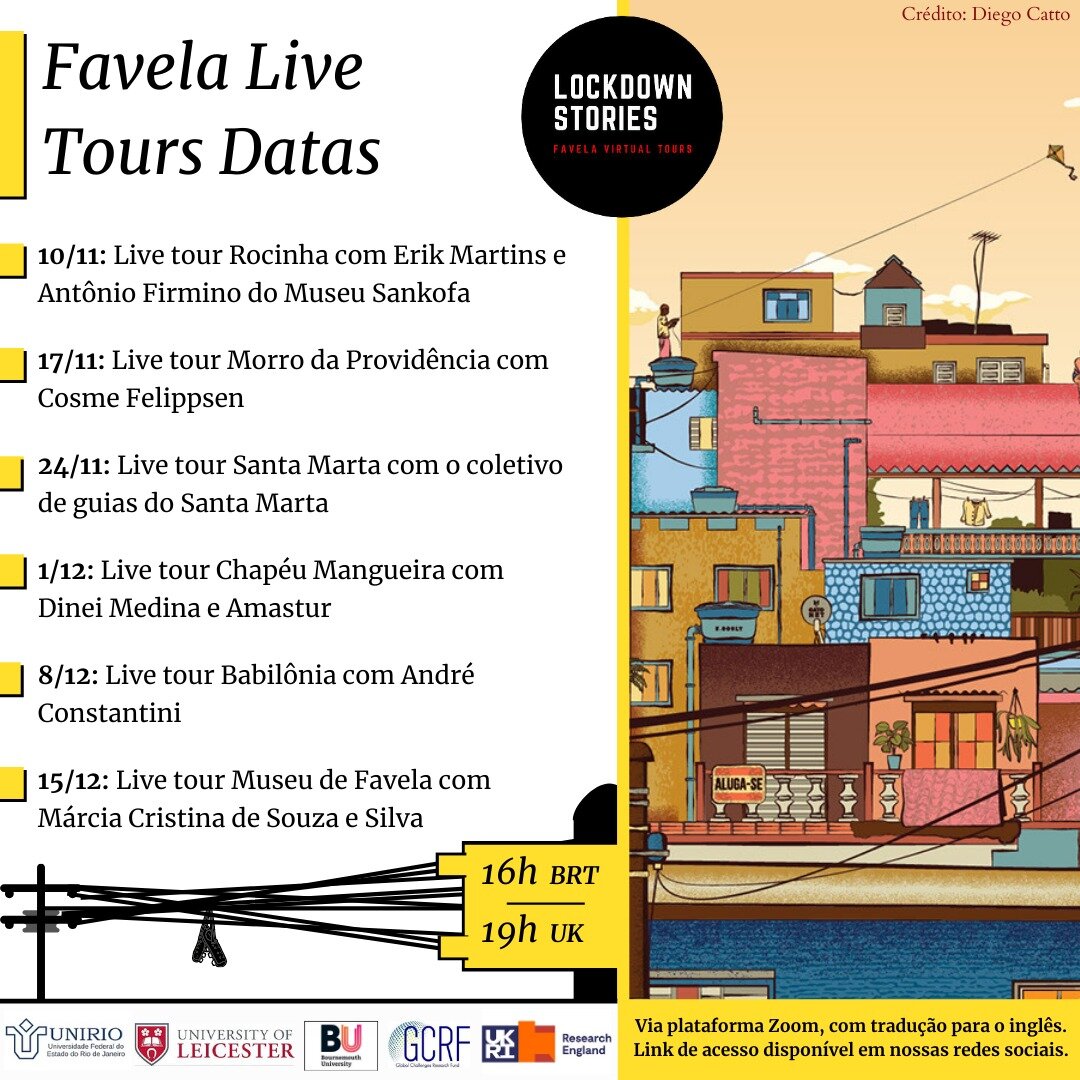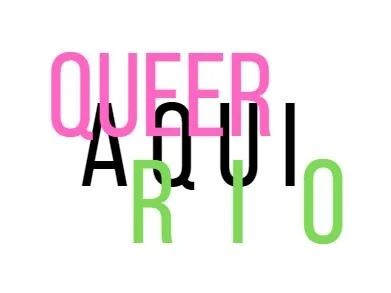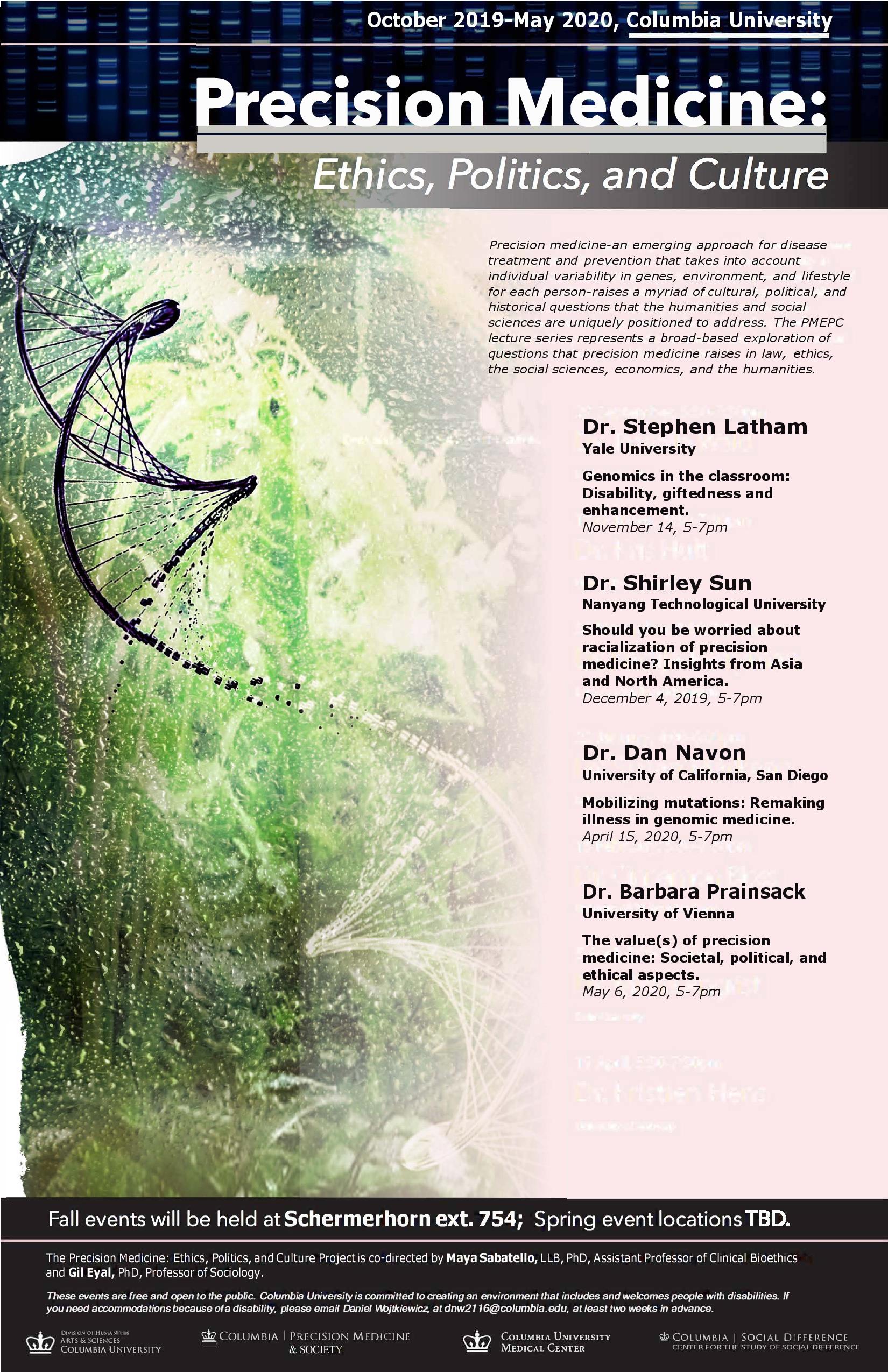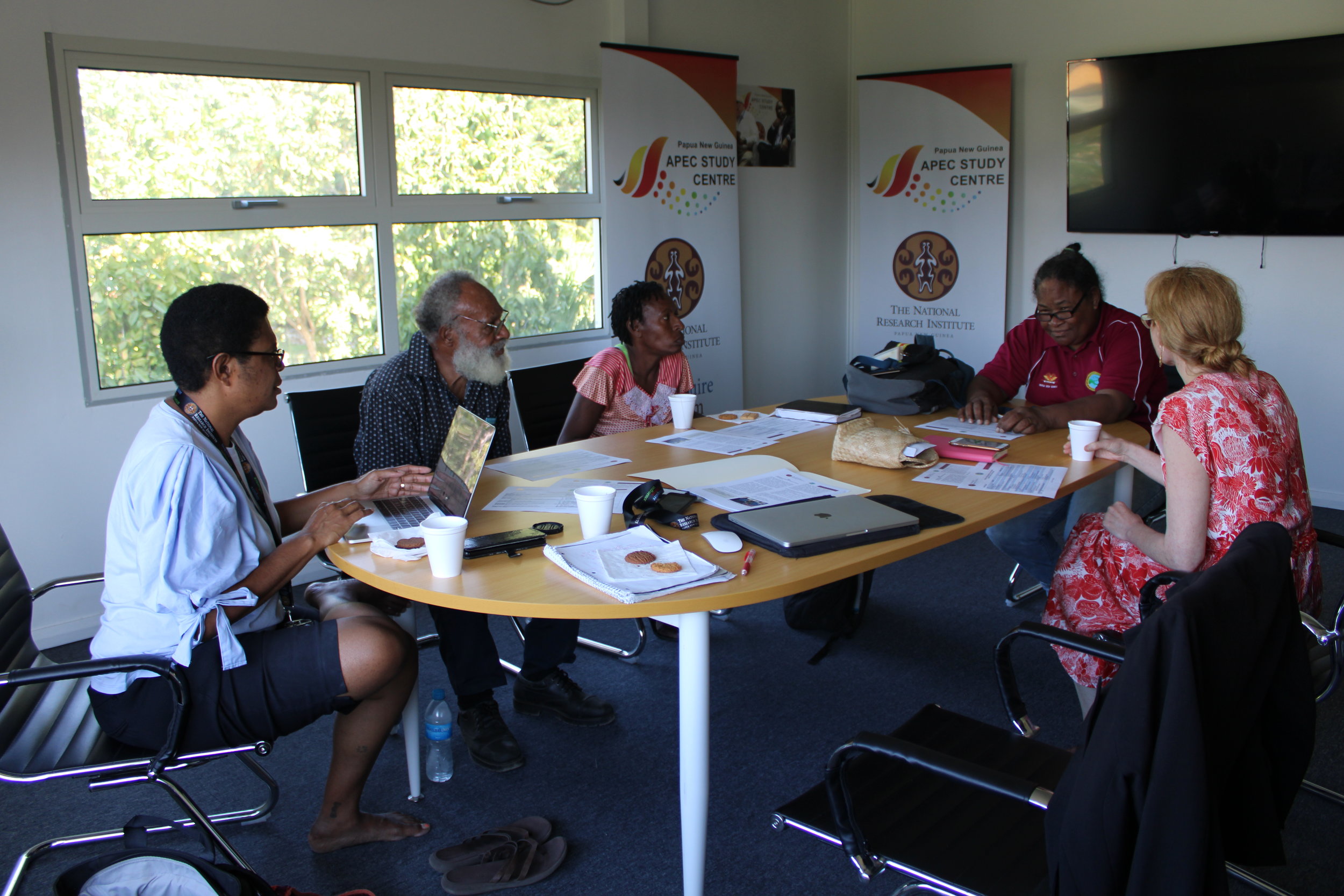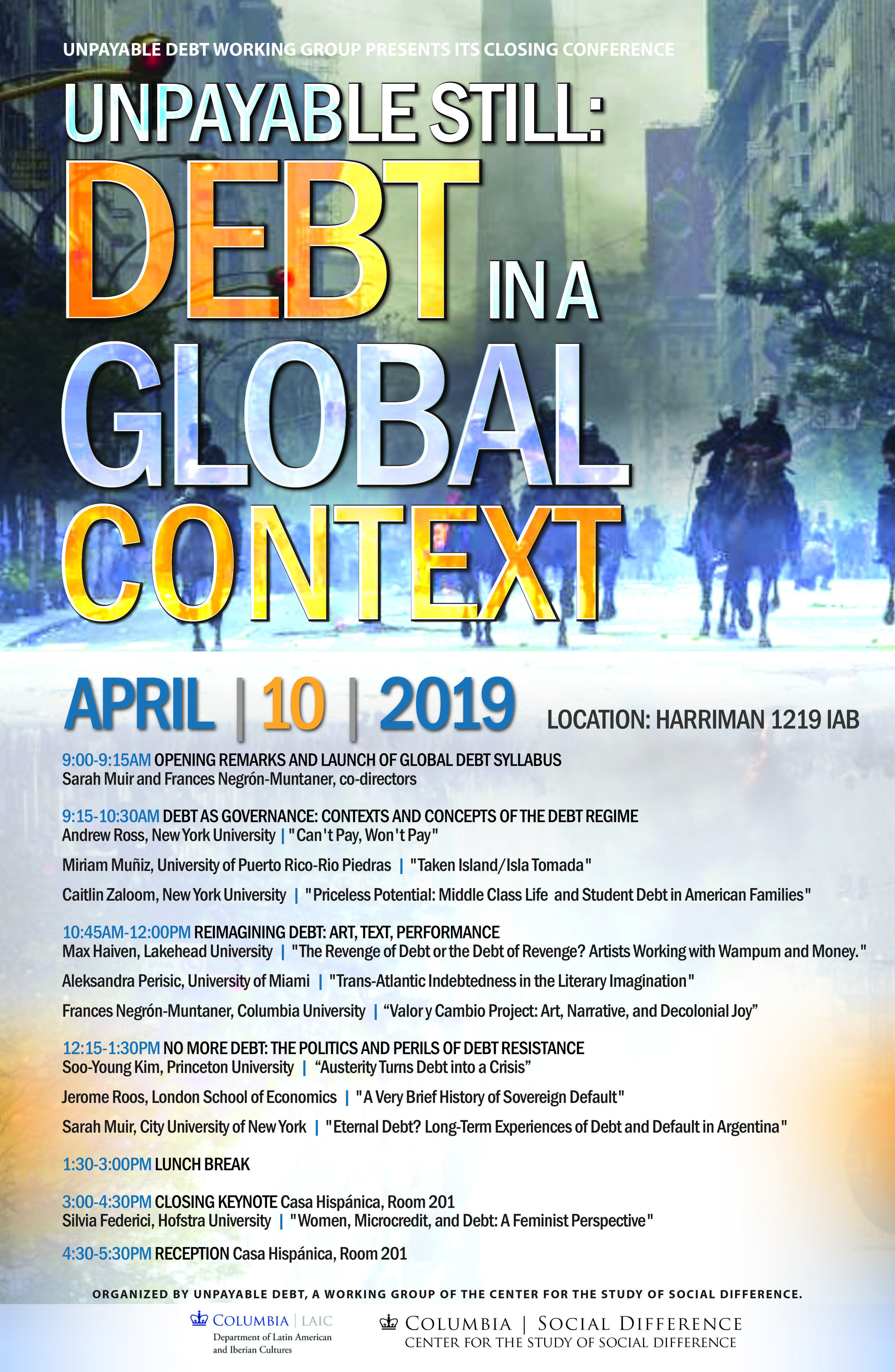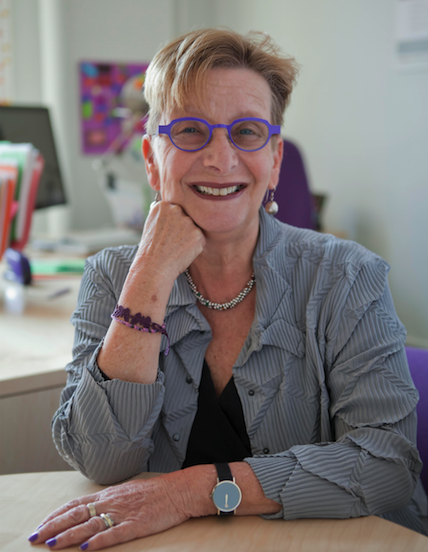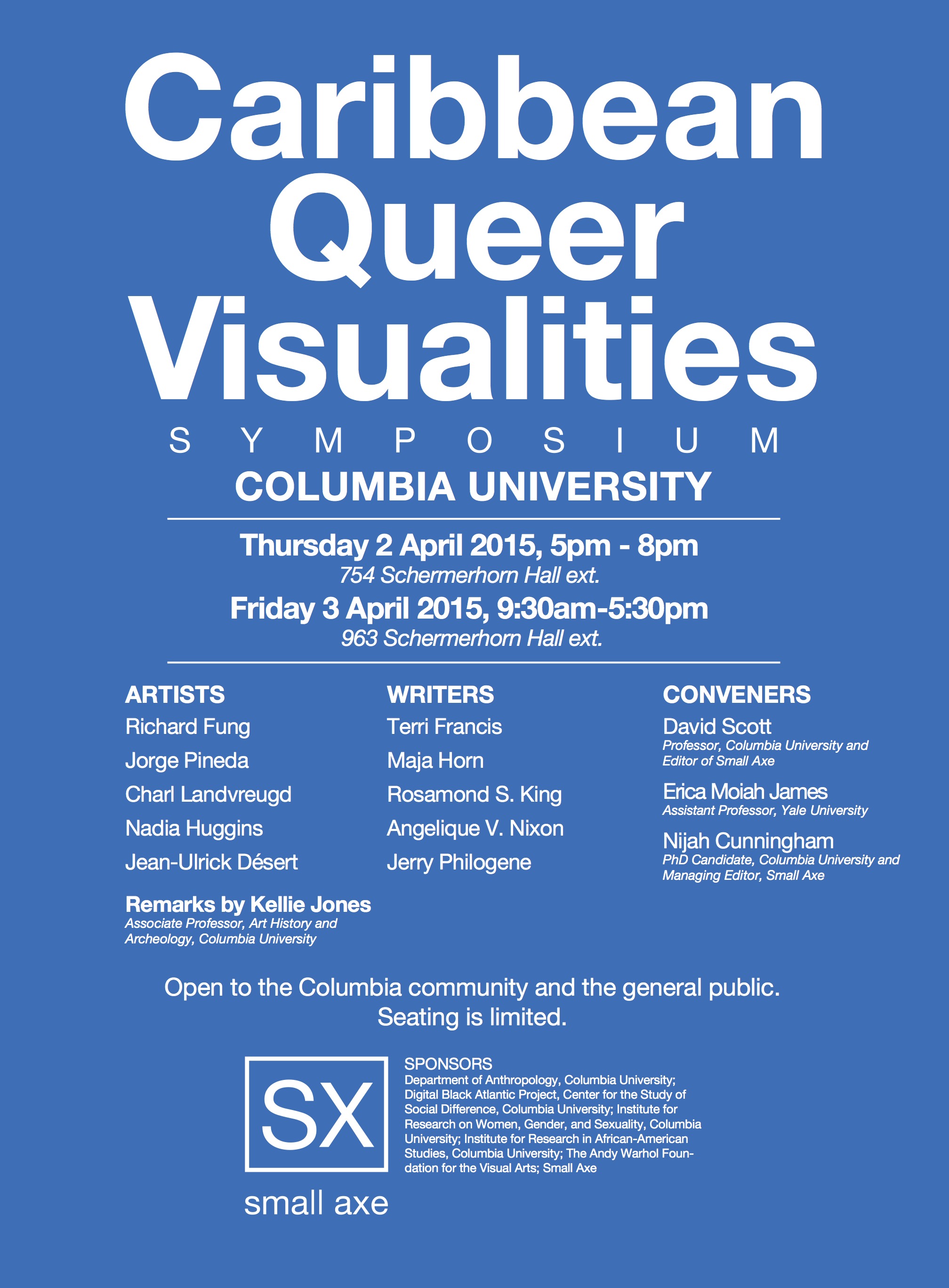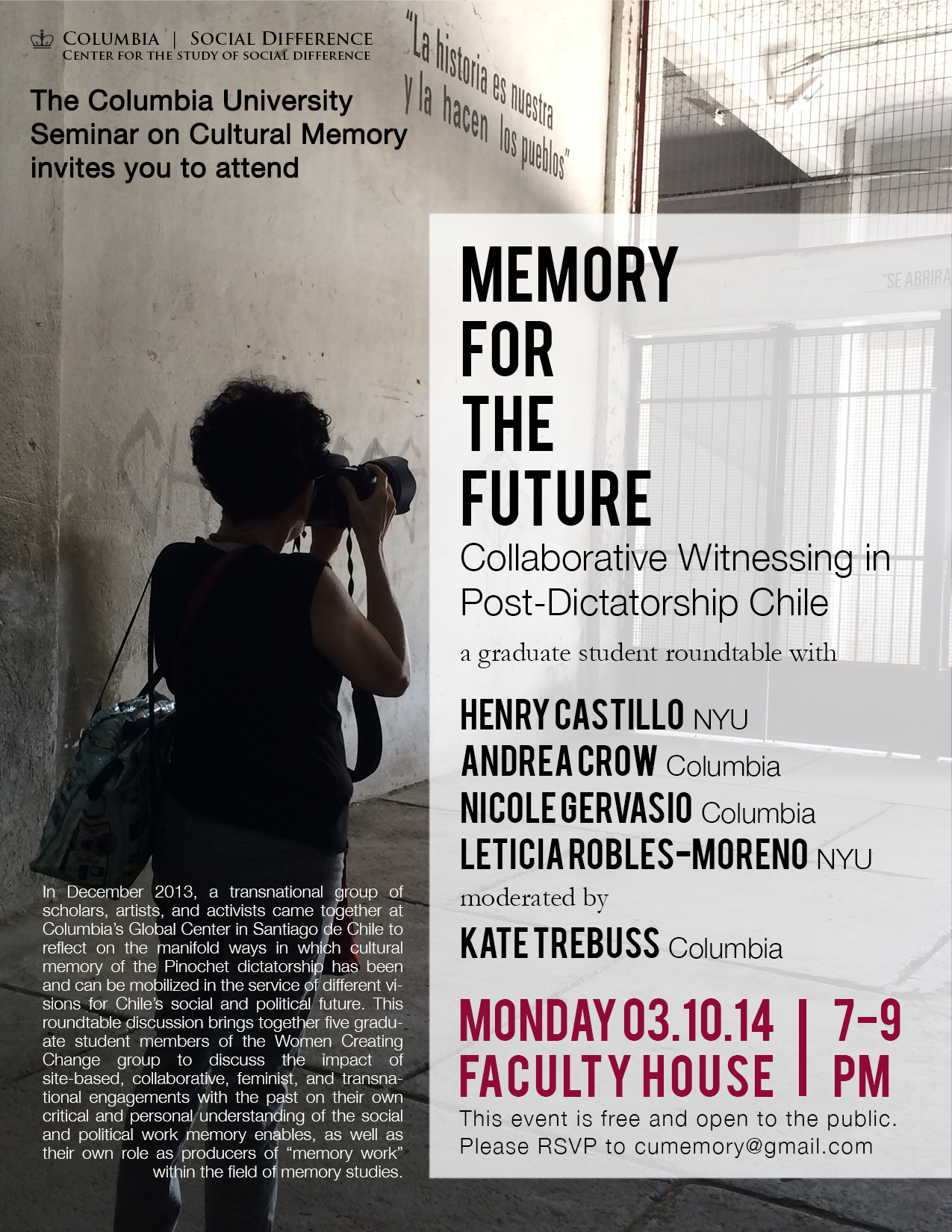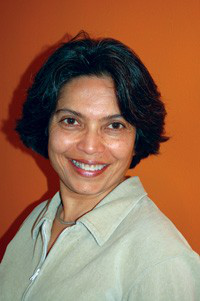Upcoming Events
2024-2025
Seeds from a Seed's Perspective: A Lecture & Discussion with Eric Sanderson
Insights on the Movement of Plant Propagules by Indigenous People, Other People, and Others in the Landscape that became New York (Welikia)
Eric Sanderson has been working for nearly twenty-five years to understand the historical ecology of New York City, deriving insights relevant to conservation, urban planning, resilience, and epistemological issues, such as: what does it mean to be a New Yorker? How do you get here? How do you get away? Here we take the seed’s perspective on these questions and examine the processes by which we can understand the historical landscape before New York, what it meant for seeds and their movement, and how those movements changed in a landscape long stewarded by the Indigenous Lenape people to one controlled by the Dutch and English settlers to the our modern American metropolis.
Register here
2022-2023
Queer Aqui: Together in Hard Times (Queer Aqui: Juntos em Tempos Difíceis) focuses upon questions about the reliance of new right-wing populist regimes on homophobic, transphobic and misogynist ideologies
Human Rights in the Menstrual Movement: Reductionism and Renewed Potential from Below
Two Day-Conference: Conception and Its Discontents: Public Humanities, Explorations in the Medical Humanities organized by the Motherhood and Technology Working Group
Lecture by Frédéric Keck, École des Hautes Études en Sciences Sociales co-organized by the Recovery working group.
The second piece of a two-part event, the Beyond Dystopia Roundtable follows the Dry Ground Burning film screening on Friday, April 28.
This film screening is the first piece of a two-part event, and will be followed by the Beyond Dystopia Roundtable on Saturday, April 29.
Conference Panel: With and Against Technoscience in the Aftermath
The Refugee Cities Working Group at the Center for the Study of Social Difference, Columbia University, presents an interdisciplinary public symposium, “Refugee Cities: Urban Dimensions of Forced Displacement.”
Join us for our first Feminist Intersectional Science and Technology Studies Conference
Camera South Asia celebrates the launch of two new anthologies on South Asian photography and cinema
Book Discussion: Putting Race to Work: Neoliberal Development in the US Virgin Islands
Celia E. Naylor (Professor of Africana Studies and History, Barnard College) will be joined by Natasha Lightfoot (Associate Professor of History, Columbia University) to discuss Naylor’s new book,
Join the Institute for a book talk with Michael Frank, author of One Hundred Saturdays: Stella Levi and the Search for a Lost World, in conversation with Holocaust survivor Stella Levi. This event is in-person at IIJS.
As part of its Period of Life: Improving Menstrual Health and Knowledge in India project, Columbia Global Centers | Mumbai is organizing a virtual workshop
Please join us as we wrap up and reflect on our project and meet related New York City Pandemic Initiatives.
Artist Talk with Paromita Vohra: Gardens of Pleasure Feminism, Desire and Doing Documentary Work in (for) South Asia
What World Is This? An Afternoon discussion with philosopher Judith Butler about the pandemic, our shared vulnerability and how to repair forward.
Jewish Female Mental–Health Professionals between Poland, the Nazis, and America: Memory, History, and Interpretation
2021-2022
CSSD working group members to will participate in LSA in Lisbon in July 2022 in a panel on Menstruation, Health, and the Law
CGC | Mumbai organized a workshop on “Critical Menstruation Studies: Strengthening Interdisciplinary Research” in Mumbai, India
The opening events of IMAGINE REPAIR include performances and presentations by Alicia Grullon, Marie Howe, Fred Moten, Amyra Léon, Rev. Juan Carlos Ruiz, George Emilio Sanchez and Noni Carter with workshop participants, and a concert by Reverend Billy and the Stop Shopping Choir.
Virtual Roundtable featuring artists Maria José Contreras, Raphael Lozano-Hemmer, and Kamau Ware.
A solo performance by george emilio sanchez that delves into how U.S. courts have diminished the Tribal Sovereignty of Native Nations.
This seminar is based on the findings of a three-year collaborative research project between feminist scholars of the Middle East and South Asia that explored these questions across a range of intersecting local, national, and global contexts, in the process uncovering the ways in which religion and racialized ethnicity, particularly “the Muslim question,” run deeply through the international governance structures of GBVAW, even when insistently disavowed.
In celebration of American Heart Month, the Columbia Global Centers | Beijing and the Women Creating Change initiative of the Center for the Study of Social Difference at Columbia University invite you to join us on February 23rd for a webinar
Public Zoom Roundtable with Gregg Gonsalves, Laura Kurgan, Bill Rankin, Jia Zhang, Jacqueline D. Wernimont and Laura Wexler.
A Música - Repertório de Viagens | An event with Silvio Luiz de Almeida + MC Carol.
An event with Muniz Sodré (Universidade Federal do Rio de Janeiro) and Nijaz (Rapper, Conjunto da Maré).
Ladee Hubbard and Ana Paulina Lee will discuss how racial representations from the past bear on the present in historical narratives and the idea of science.
A Symposium with James Young, Kristin Urquiza, and Karla Funderburk.
A concert in honor of Samuel Hargress, Jr. who opened the historic jazz club, “Paris Blues” on November 15, 1969.
A film about a gifted newborn who knows how to talk, walk and run, and is also the savior of the village.
Multilingual artists and performers offer live performance experiences.
Virtual Roundtable: Reparative Memory
Featuring: Michael Arad, Susan Meiselas, Doris Salcedo, Hank Willis Thomas, Mabel Wilson
Moderated by Carol Becker
An event in appreciation of everyday storytelling and its various techniques.
This special panel including Angelika Bammer (Emory), Raina Croff (Oregon), Evelynn M. Hammonds (Harvard), Sará King (Oregon), and Bianca Jones Marlin (Columbia) will focus on issues of inter-generational trauma, healing, neuroscience, and race.
The activity aims to carry out artistic, poetic and reflective exercises with different audiences, inspired by the concept of “poetics of childhood” by Renato Noguera, Ação Poética.
This panel with Meyby Ugueto-Ponce, Sharún Gonzalez Matute, and Camila Daniel demystifies academic writing and unmasks the epistemic racism in Latin American universities.
An event aimed at highlighting Black women perspectives and decolonizing the field of Latin American studies.
In this talk, the indigenous thinker and philosopher Ailton Krenak urges us to take seriously the value of the indigenous philosophies of the Americas when it comes to confronting the climate change crisis.
Join us via Zoom for this event in a series of workshops that will take place in 2021-2022 as part of the CSSD Geographies of Injustice working group's activities.
2020-2021
Join us for the release of the report on the proceedings of the third colloquium of the History and Future of Planetary Threats series held on March 31, 2021. Special guest speaker Tom Frieden, report contributor Chinwe Lucia Ochu, and panelist Youssef Charif will reflect on the report’s critical lessons for crisis communications and vaccine uptake.
Renowned artist and designer Maya Lin presents new and major works.
The inaugural public event of the Transnational Black Feminisms Working Group of the Center for the Study of Social Difference (CSSD)
This conference brings together experts in the natural sciences, social sciences, and humanities from Columbia and outside institutions to participate in a highly interdisciplinary discussion of nature and society in Latin America. Engaging varied disciplinary and national perspectives, the conference takes a regional approach to land and natural resource use policies and politics on the premise that there are important social, economic, political, human rights and environmental interlinkages between different countries in the region that can provide the foundation for productively rethinking nature in Latin America.
Join the Transnational Black Feminisms working group for the U.S. virtual book launch of Knowing Women: Same Sex Intimacy, Gender, and Identity in Post Colonial Ghana by serena o. dankwa. serena o. dankwa is an Associate Researcher in the Institute of Social Anthropology and the Interdisciplinary Center for Gender Studies at the University of Bern and is affiliated with the Institute of African Studies, University of Ghana, Legon. Knowing Women is an ethnography on friendship, desire, and same-sex intimacy among urban, working-class women in southern Ghana.
As the COVID-19 vaccine campaign moves worldwide, innovative approaches to vaccine campaigns are badly needed. How to build trust in vaccines among a weary, anxious and often skeptical public? Join us for a conversation among African and US policymakers, activists, nursing leaders and academics to dissect the elements of effective risk communications campaigns, with an emphasis on empowering individuals and communities to lead the charge.
You are invited to meet, listen to, and engage with frontline nurses and midwives at our launch event on Wednesday, March 10th, 2021 at 12:00 pm EST. We’ll share the website and hear from project contributors and interviewees.
The coronavirus pandemic inaugurated a global shift to online learning, working, and socializing. This event considers the immediate and longterm effects such a move has on parents and on forms of mothering in particular.
Periods are having their moment – in this Society for Menstrual Cycle Research (SMCR) webinar we hear from people who are turning it into a movement.
Join the new Motherhood and Technology working group for the Unexpected: Parenting, Prenatal Testing, and Down Syndrome virtual book launch.
Join the Data, Algorithms, and Social Justice working group for an online event featuring Dr. Jackie Wang (New School, Culture and Media Studies, author of Carceral Capitalism).
This event is a part of the Afro-Americas in Dialogue Series: Brazilian Black Awareness Month.
In our first tour, we would like to invite you to visit favela of Rocinha with professional guides tours, Erik Martins from ‘Rocinha by Rocinha’ Tours and Antônio Firmino from Sankofa Museum. Erik’s tour provides a genuine experience in a favela with local people, but also with information about tour origins, trajectories, their struggles, culture, and the dynamics of Favela of Rocinha.
Join the Data, Algorithms, and Social Justice working group for a workshop with the Surveillance Technology Oversight Project (Urban Justice Center, NYC).
Co-sponsored by the Geographies of injustice: Gender and the City working group and featuring working group co-directors Ana Paulina Lee and Anupama Rao
On Thursday, October 15th, 4:00-5:30 PM EST the Data, Algorithms, and Social Justice working group at Columbia’s Center for the Study of Social Difference welcomes SX Noir—vice president of Women of Sex Tech, sex worker advocate, and host of the “Thot Leader” podcast—for a thought-provoking exploration of sexuality, technology, and activism today.
2019-2020
Cardiovascular disease is the leading cause of death in women in the United States and India, and yet women are less likely to seek healthcare for themselves for a variety of social and economic reasons. Join our panel of experts as they discuss the challenges and approaches in providing care for women's heart disease during the current COVID-19 crisis.
Presented by the Center for the Study of Social Difference working group, On the Frontlines: Nursing Leadership in Pandemics.
Mary Marshall Clark, director of the Center for Oral History Research at Columbia University, will lead a workshop on how to plan and conduct oral histories in communities affected by disasters and pandemics.
The Environmental Justice, Belief Systems and Aesthetic Experiences in Latin America and the Caribbean working group present a film screening of Antonio & Piti, followed by a Q&A with the film’s directors, Vincent Carelli and Wewito Piyãko.
The Precision Medicine: Ethics, Politics, and Culture Project welcomes Dr. Barbara Prainsack (University of Vienna) to give a talk on “The Value(s) of Precision Medicine: Societal, Political, and Ethical Aspects.”
The Precision Medicine: Ethics, Politics, and Culture Project welcomes Dr. Dan Navon (University of California, San Diego) to give a talk on “Mobilizing Mutations: Remaking Illness in Genomic Medicine.”
The Precision Medicine: Ethics, Politics, and Culture Project welcomes Dr. Shirley Sun (Nanyang Technological University) to give a talk on “Should You Be Worried about Racialization of Precision Medicine? Insights from Asia and North America.”
Lila Abu-Lughod discusses how agendas to combat violence against women and gender-based violence have been taken up as tools of state sovereignty and global security.
Please join the Menstrual Health and Gender Justice Working Group, the Center for the Study of Social Difference, and the Institute for the Study of Human Rights for an interdisciplinary workshop on November 22, 2019 entitled "Multifaceted Menstruation".
The Women Mobilizing Memory working group presents Reclaiming Collective Memories in Contemporary Turkey, a panel discussion and book presentation.
The Precision Medicine: Ethics, Politics, and Culture Project welcomes Dr. Stephen Latham (Yale University) to give a talk on “Genomics in the Classroom: Disability, Giftedness and Enhancement.”
Please join us in celebrating the recent publication of Gender, Governance and Islam, with an introduction by Lila Abu-Lughod.
CSSD working group Women Mobilizing Memory will be celebrating the recent publication of their eponymous book Women Mobilizing Memory with a reception and brief presentations from some of the book’s contributors.
Join us for a discussion on ways to improve women’s health on an individual and societal/structural level. Registration is required.
The 6th Georg Arnhold Symposium will explore the relationship between refugee hosting and refugee education in large refugee hosting states in the Global South in light of global policy shifts that attempt to stem secondary movement.
A two-day event organized by the Environmental Justice working group including a screening of the film Ushui and workshop and discussion with the film makers.
Join us for a lively discussion of the #Me Too movement, with contributors to Indelible in the Hippocampus: Writings from the Me Too Movement. Moderated by Davia Temin.
We regret the conflict with Yom Kippur and will share documentation of the event at a later date and continue the important #MeToo conversation.
This panel will engage five emerging LGBTQ filmmakers from the Arab world in a meaningful discussion on the role of Arab queer cinema in shaping and giving voice to the Arab LGBTQ community.
2018-2019
The pop-up exhibition “Arts of Intervention” brings together an international group of artists connected to the working group on “Women Mobilizing Memory” of Columbia University’s Center for the Study of Social Difference in the context of the Third Annual Memory Studies Association Conference in Madrid, June, 2019.
The Walther Collection and CSSD present a two-day symposium on vernacular photography.
Erna Brodber and Nicole Dennis-Benn will discuss issues including the Caribbean and its diaspora, method, feminism, and gender in their work.
A workshop presented by the CSSD working group Geographies of Injustice.
On Sunday September 30th 2018, the Center for New Narratives in Philosophy at Columbia University will host its second Pedagogy of Dignity workshop at Columbia’s Lenfest Center for the Arts, in connection with the Pedagogies of Dignity working group at the Center for the Study of Social Difference.
CSSD invites you to an All-Day Symposium to celebrate 10 Years of the Center for the Study of Social Difference and 5 Years of Women Creating Change!
2018 marks the 5th Anniversary of Columbia Women Creating Change!
To celebrate this momentous year a reception and panel discussion will take place featuring women leaders in media.
In conversation with Hannah Arendt’s discussion of the “dark times,” this talk will present a critical reflection of the possibilities and challenges of doing feminism and gender studies in Turkey today.
This one-day conference recovers the histories and possible futures of anti-imperialist struggle.
This panel will bring together experts on menstrual health – established and emerging
scholars as well as practitioners. While research on menstruation is not new, the current
momentum creates new opportunities.
2017-2018
The Bandung Humanisms working group presents its culminating workshop, titled "The Bandung Spirit: Reflections on Afro-Asian Solidarity."
Columbia University Press in partnership with the Centre d'histoire de Sciences Po presents:
“Democracy and the Welfare State: The Two Wests in the Age of Austerity,” a book presentation at the Columbia Global Centers-Paris.
At this talk, Dr. Yükseker will provide an overview of the Turkish state's responses to recent inflows in terms of legislation, the delivery of public services and social policy.
The Center for the Study of Social Difference invites you to a conference discussing a work in progress on “The Rural-Urban Interface: Gender and Poverty in Ghana and Kenya, Statistics and Stories.”
In recognition of Sexual Assault Awareness Month, CSSD working group Reframing Gendered Violence co-sponsors an interactive panel exploring lessons learned from the past 40 years in the field of sexual violence, examine the current landscape, and identify key strategies for the future.
CSSD working group Unpayable Debt: Capital, Violence, and the New Global Economy presents Frontier of Debt in the Caribbean and Afro-America.
CSSD co-sponsors an international symposium focused on advancing research and assessing impacts of Environmental Violence on Indigenous Women and Girls.
CSSD co-sponsors Urban Floods: Interdisciplinary Perspectives conference.
CSSD working group Bandung Humanism cosponsors "The Afro-Asian 'Silk Road' and the Rhetoric of Connected History" talk by Tamara Chin (Brown University).
CSSD working group Geographies of Injustice co-sponsors discussion on Dalit Feminisms and Dalit Futures.
CSSD working group Reframing Gendered Violence co-sponsors DOCUMENTARY STORYTELLING AND COLLABORATIVE PRACTICES: A conversation with photographers Nina Berman, An Autobiography of Miss Wish, and Susan Meiselas, A Room of Their Own.
CSSD working group Precision Medicine: Ethics, Politics and Culture presents "Ask but Don’t Tell: The Stubborn Alienation of Research Participants in the Twenty-first Century," a talk by Dr. Misha Angrist (Duke University).
The CSSD working group Social Justice After the Welfare State presents:
"Democracy after the Welfare State: a Conversation," a book launch event for Democracy and the Welfare State: The Two Wests in the Age of Austerity, edited by Alice Kessler-Harris and Maurizio Vaudagna.
CSSD Bandung Humanisms project co-sponsors: On South-South Circulations, Histories and Possibilities in the Arab World
CSSD co-sponsors a roundtable of scholars and activists celebrating the publication of Annelise Orleck's new book, "We are all Fast Food Workers Now: the Global Uprising Against Poverty Wages.”
CSSD co-sponsors lecture by Prof. Jane Gallop, Distinguished Professor of English and Comparative Literature at the University of Wisconsin—Milwaukee.
Celebrate the launch of CSSD's newest working group, Queer Theory: Here, Now, and Everywhere, with the Queer Disruptions conference on March 1-2, 2018.
CSSD working group Precision Medicine: Ethics, Politics and Culture presents Consumers, Citizens, and Crowds in the Age of Precision Medicine: a talk by Cinnamon Bloss, Ph.D (University of California, San Diego).
The Reframing Gendered Violence project at CSSD presents a panel discussion with Fiona Hukula (PNG National Research Institute), Mary Fairio (PNG National Research Institute), and Melissa Demian (University of St. Andrews).
CSSD working group Precision Medicine: Ethics, Politics and Culture presents The Genomic Revolution, Genetic Counselors, and "Doing Ethics": a talk by Dr. Susan Markens (CUNY-Lehman College).
CSSD working group Pacific Climate Circuits, with support from the Barnard College Department of Anthropology, presents a free film screening and Q&A with Dan Taulapapa McMullin.
CSSD working group Precision Medicine: Ethics, Politics and Culture presents Fairness in Precision Medicine: a talk by Kadija Ferryman from the Data & Society Research Institute.
A panel with Sherene Razack (Department of Gender Studies, UCLA), Nadera Shalhoub-Kevorkian (Law School, Hebrew University; International Visitor, Columbia Law School), and Miriam Ticktin (Department of Anthropology, New School University), moderated by Lila Abu-Lughod (Columbia University)
Carolee Schneemann discusses her boundary-breaking practice and creative process, on the occasion of Carolee Schneemann: Kinetic Painting at MoMA/PS1, the first comprehensive retrospective of her work.
CSSD working group Precision Medicine: Ethics, Politics and Culture presents The Economics of Precision Medicine: Medicine and Disparities in Health: a talk by Kristopher Hult (University of Chicago).
As part of the Reframing Gendered Violence project at the Center for the Study of Social Difference, BEYOND PREVALENCE brings together a nationwide group of scholars for a panel based on the consensus that campus sexual assault is a serious public health problem, and that innovative and effective prevention requires research that both includes and extends beyond simply measuring the scope of the problem
CSSD working group Precision Medicine: Ethics, Politics and Culture presents Cells, Genes, and Stories: HeLa and the Patenting of Life: a talk by Priscilla Ward (Duke University).
2016-2017
On June 19, 2017, CSSD’s working group on Bandung Humanisms is presenting an international workshop entitled Bandung Humanisms: Towards a New Understanding of the Global South at Nanyang Technological University (NTU) in Singapore.
The World After the Russian Revolution
Harry Harootunian, New York University
Wang Hui, Tsinghua University, Beijing
Susan Buck-Morris, Graduate Center, CUNY
Friday, April 21
Institute for Public Knowledge
New York University
20 Cooper Square, Room 222
New York, NY
Narratives of Debt is a one-day conference presented by CSSD's working group on Unpayable Debt and the Oikos working group at NYU’s Institute for Public Knowledge. The conference focuses on the ways that people and groups h
Senior Research Scholar, Center for Biomedical Ethics, Stanford University
"Will Precision Medicine Be for 'All of Us'? The 'Good Citizen' in an Age of Disparity"
Precision medicine research relies on the massive collection of biospecimens, electronic health records, and other sources of behavioral and environmental data.
Thursday, March 30th, 2017, 4:10 - 6 p.m.
Butler Library 523
Bikem Ekberzade, Photojournalist, Turkey, "The Refugee Project: Anatomizing Gendered Violence"
The Center for the Study of Social Difference and the Women, Gender, and Sexuality Studies Council
Jackie Leach Scully, Professor of Social Ethics and Bioethics, and Executive Director, Policy, Ethics and Life Sciences Research Centre, Newcastle University, UK will ask how are the enormous recent advances in genomic knowledge and capabilities changing the meaning of the relationship between material embodiment and our sense of self? What does that mean for our understanding of embodiment that is disabled?
Friday, February 10, 4:10 - 6 p.m.
612 Schermerhorn Hall
“Rape Trees, State Security and the Politics of Sexual Violence along Migrant Routes in Mexico”
Wendy Vogt, Professor of Anthropology, Indiana University-Purdue University Indianapolis
“Suppliants and Deviants: Gendering the Refugee/Migrant Debate on the EU Border”
Chloe Howe Haralambous, Graduate Student, Engl
Jacqueline J L Chin, Associate Professor, Centre for Biomedical Ethics, Yong Loo Lin School of Medicine, National University of Singapore presents a discussion on February 9, 2017 about "Precision Medicine, Privacy, and Family Relations."
The talk, sponsored by CSSD's project on Precision Medicine: Ethics, P
Premilla Nadasen, Associate Professor of History at Barnard College and co-director of CSSD’s working group on Social Justice After the Welfare State, will participate in a Dissentmagazine issue launch focused on the challenges feminists will face under a Trump presidency on
Ruha Benjamin, Assistant Professor of Sociology and African American Studies, Princeton University presents a discussion on November 10th called "Can the Subaltern Genome Code?
Thursday, November 3, 2016, 4:15 p.m.
203 Butler Library
“Child Marriage in the Feminist Imagination”
Dina Siddiqi, Professor of Anthropology at BRAC University, Dhaka
“Race, Religion, and Masculinity: Europe’s Obsessions”
Rebecca Karl, Associate Professor, History, NYU
Jamie Monson, Director, African Studies, Michigan State University
Stephanie Rupp, Asssitant Professor, Anthropology, CUNY-Lehman
Barry Sautman, Professor, Division of Social Sciences, Hong Kong University of Science & Technology
Hairong Yan, Anthropologist, Department of Applied Social Sciences, Hong Kong Polytechnic University
Duncan Yoon, Assistant Professor, English, University of Alabama
CSSD's Precision Medicine working group presents Aditya Bharadwaj, Research Professor, The Graduate Institute, Geneva, on "Cultivated Cures: Ethnographic Encounters with Contentious Stem Cell Regenerations in India" on October 13th, 2016 from 5-7 p.m. at 754 Schermerhorn Extension.
The lecture seeks to conceptualize how we might understand a scene of chronic and progressively pathological affliction as a site for witnessing the anatomy of a cultured and cultivated cure from within the emergent field of regenerative medicine.
October 13, 4:15 p.m., 203 Butler Library
"Feminist Politics, War Rapes, and Global Governance"
Dubravka Zarkov, Associate Professor of Gender, Conflict and Development at the International Institute of Social Studies, The Hague
CSSD’s Precision Medicine working group presents James Tabery, Adjunct Associate Professor, Pediatriacs, Internal Medicine, and Philosophy, University of Utah, on "Collins' Cohort: The Path from The Human Genome Project to the Precision Medicine Initiative" on September 15th, 2016 from 5-7 p.m.
2015-2016
The Center for the Study of Social Difference and the Women, Gender, and Sexuality Studies Council are co-hosting a spring 2016 Keywords Roundtable Discussion on t
A symposium to celebrate the 25th anniversary of the Americans with Disabilities Act, The Future of Disability Studies project, and the publication of Keywords for Disability Studies.
"Collaborative Archives: Connective Histories," part of the CSSD working group Women Mobilizing Memory's Collaboration and Co-Resistance project, runs at Neiman Gallery until September 18th, 2015.
The exhibition was curated by Katherine Cohn and Isin Onol and is the manifestation of multi-year collaboration of a transnational group of artists, scholars and activists from the U.S., Chile and Turkey who study the politics of memory from the unique perspective of gender and social difference.
The gallery is open Monday through Friday, 9 a.m. - 5 p.m. View the exhibit page here.
In the context of its fourth international working group meeting, Women Mobilizing Memory presents an art exhibition
"Women Mobilizing Memory," a three-year working group of Columbia’s Center for the Study of Social Difference, explores the politics of memory in the aftermath of the atrocities of the twentieth and twenty-first centuries in comparative global perspective with unique attention to the effects of social difference. Focusing on the shaping role of gender in the structures of political violence, the working group analyzes the strategies by which women artists, scholars and activists have succeeded in mobilizing the memory of gender-based violence to promote redress, social justice, and a democratic future. Looking at gendered memory politics in several sites around the world, the group has analyzed these in a broader connective context. From the fortieth anniversary of the Chilean coup, the 100th anniversary of the Armenian genocide, and cycles of violence against indigenous and minority peoples in Chile, Turkey and the United States, it has featured activist and future-oriented modes of representation and commemoration. At the same time, it probes the limits of comparative and connective approaches to memory politics. Based in the Humanities and the Arts, the group looks closely at the political efficacy of various media of memory, ranging from visual art, literature, journalism and performance to museums, memorials, and street actions. What role do these various media play in combatting the erasure of past violence from current memory and in creating new visions and new histories for future generations? The collaborations among the participants in the working group, their face-to-face as well as virtual meetings and their constructive conversations and disagreements, aim to create a space of solidarity and co-resistance that can lay the groundwork for a more hopeful future.
2014-2015
In early 2015 Shoshana Magnet, associate professor at the Institute of Feminist and Gender Studies at the University of Ottawa, came to speak to CSSD’s working group on Science and Social Difference about her feminist analysis of recent scientific inquiry into mixed societies of robots and insects.
Magnet, co
Keywords event on "trans," featuring Jack Halberstam, Professor of American Studies and Ethnicity, Gender Studies and Comparative Literature, University of Southern California; Yvette Christiansë, Professor of English and Africana Studies, Barnard College; Jack Pula, Instructor of Psychiatry, College of Physicians & Surgeons, Columbia University and Chairperson of the Transgender Committee, Association of Gay and Lesbian Psychiatrists; and Yasmine Ergas, Co-Chair of Women's, Gender & Sexuality Studies Council, Director of Gender & Public Policy Specialization, and Lecturer in Discipline of International and Public Affairs, SIPA. Moderated by Jean Howard, George Delacorte Professor in the Humanities and Chair, Department of English and Comparative Literature, Columbia University.
Pulitzer Prize-winning journalist and author Ron Suskind spoke at Columbia in March about pursuing a demanding career in investigative journalism while raising his autistic son Owen.
Over the course of this afternoon of multiform panel presentations, we will engage critically with the digital as praxis, reflecting on the challenges and opportunities presented by the media technologies that evermore intensely reconfigure the social, historical, and geo-political contours of the Caribbean and its diasporas. Presenters will consider the affordances and limitations of the digital with respect to their particular methodologies – notably, representing the past, historicizing space, and telling stories.
Caribbean Queer Visualities, co-sponsored by the CCSD working group the Digital Black Atlantic Project, reflects on and stimulates the production of creative and critical work that takes seriously the emergence of heterodox personal and public identities, identities that breach or subvert or evade the heteronormativities of colonial and postcolonial modes of being and self-expression.
REGISTRATION REQUIRED; BY INVITATION ONLY
Social Justice after the Welfare State, a workshop led by Alice Kessler-Harris and Premilla Nadasen in the Center for the Study of Social Difference (CSSD) at Columbia, hosts a daylong symposium to explore the transformation of the welfare state and social movements in the face of neoliberal challenges. We consider the implications of this transformation for the political economy of class, gender, racism, and migration.
The Caribbean Digital is a unique two-day conference presented by the Center for Social Difference's Digital Black Atlantic Project (DBAP).
Over the course of the twentieth century in the United States and Europe, the social bargaining process we call welfare integrated capital and labor in ways that had a profound impact on political participation and legitimacy. Examining social policy and citizenship in a comparative framework, Christian Lammert, professor for North American Politics at the John F. Kennedy Institute of the Free University of Berlin, will speak to the relationship between welfare and democracy—a question central to contemporary transatlantic debates surrounding capitalism, austerity, and inequality.
"Coming to Terms" with Gendered Memories of Genocide
2013-2014
Please join us for "Beyond masculinity: testosterone, sexual desire, and gender/sex," lecture by Sari van Anders, University of Michigan.
Keywords event on "Vulnerability" featuring Walter Bockting, Professor of Medical Psychology (in Psychiatry and Nursing) and Co-Director, LGBT Health Initiative, Division of Gender, Sexuality, and Health, Department of Psychiatry; Katherine Ewing, Professor of Religion and Director, Center for the Study of Religion and Sexuality; Marianne Hirsch, William Peterfield Trent Professor of English and Comparative Literature and Women’s and Gender Studies and Director, Center for the Study of Social Difference; and Richard Parker, Professor of Sociomedical Sciences and Anthropology, and Director, Center for the Study of Culture, Politics, and Health; with Alondra Nelson, Professor of Sociology and Women’s and Gender Studies, Director, Institute for Research on Women, Gender, and Sexuality, and Co-Chair, Women's Gender, and Sexuality Studies Council, moderating.
A graduate student roundtable discussion with Henry Castillo (NYU), Andrea Crow (Columbia), Nicole Gervasio (Columbia), and Leticia Robles (NYC) and moderated by Kate Trebuss (Columbia)
As part of the Heyman Center for the Humanities Disciplines Series:
Evaluation, Value, and Evidence, authors Alison Piepmeier, George Estreich, and Rachel Adams take up many of the questions raised in the November 2013 event on "Genes, Children, and Ethics" (featuring Michael Berube, Faye Ginsberg, and Rayna Rapp) in their discussion of "Parenting, Narrative, and Our Genetic Futures." Jordana Mendelson will chair.
Cosponsored by the Future of Disability Studies project.
Please join the Institute for Research on Women and Gender and The Center for American Studies as we celebrate the recent publishing successes of our Project Directors and affiliated faculty:
2012-2013
Deborah A. Thomas, Professor of Anthropology at the University of Pennsylvania, will be speaking on "Exceptional Violence: Embodied Citizenship in Transnational Jamaica." She is the author of Modern Blackness: Nationalism, Globalization, and the Politics of Culture in Jamaica and a co-editor of Globalization and Race: Transformations in the Cultural Production of Blackness, both also published by Duke University Press.
2011-2012
Evan is a young man with Down Syndrome who lives with his mother in a poor, working-class town hit hard by the recent economic recession. When he unexpectedly comes into a large amount of money, Evan uses it to romantically pursue Candy, a girl from town whom he has loved since high school. Candy, now a barely-employed single mom, is facing financial debt, possible eviction, and the inability to rid herself of Russ, her abusive and volatile ex-boyfriend.
Put your back into it. Show some spine.
Publications Party in celebration of the publication of Marianne Hirsch and Nancy K. Miller's Rights of Return and Alondra Nelson's Body & Soul and the launch of our NEW journal SocialDifference-Online.
A talk by Tobin Siebers (Department of English, University of Michigan) with a response by Elizabeth Leake (Department of Italian, Columbia University)
This panel will explore the the conflicts and common ground between two fields that have often been in tension with one another. Speakers will be asked to share their insights into this tension, identifying spaces of possibility where the two might intersect/collaborate/learn from one another.
What are the effects of catastrophe on cities, their inhabitants, and the larger world? How can we address the politics of terror with which states react to their vulnerability? In a series of presentations and conversations, an international group of artists, writers, activists and individuals directly affected by urban inquiry will imagine creative modes of reinvention in response to urban disasters.
We begin our project with a panel of students, faculty, and staff who discuss the ways the university has both accommodated and excluded people with disabilities. What are some of the surprising and innovative ways that Columbia has sought to include people with disabilities in its community? Conversely, how has it managed to maintain ADA compliance, while creating an unwelcoming environment for people with disabilities? Our campus will serve as a starting place for a broader discussion about disability, access, and higher education.
2008-2009
A conference and roundtable discussion on the connections between international borders and social boundaries in the contemporary world with a keynote address by Nina Bernstein of the New York Times on “Outlaw Generation: A Crackdown and its Consequences for Children in Illegal Immigrant Families in the United States”
Free and open to the public
Clive van den Berg has designed and curated many of South Africa's most significant heritage installations: the Women's Gaol & Prison #4 at Constitution Hill, the Worker's Museum, the Kimberley Legislature, and Freedom Park. His studio art practice has similarly explored issues of memory and memorialization in the face of silence and forgetfulness. In this lecture, he presents his own work, and meditates on the possibility of giving form to what escapes the order and the authority of the page in a nation whose diverse histories have rarely been given voice.
This paper examines the affective circuits that animate images of disturbing events, looking in particular at the politics of pity and compassion. Focussing mainly on an image of famine in the Sudan, incorporated into a video installation by Alfredo Jaar, it analyses the complex of positive and negative affects aroused by the documentary image, and the way in which these are exposed and
From Gogol's short story of a body divided against itself, and the archive of Stalin's purges, comes William Kentridge's magical restaging of Shostakovich's opera, 'The Nose.' Kentridge, one of the world's foremost artists, is joined by opera scholar and dramaturgue David Levin to discuss his visual investigation of anarchism and anomie, power and its excesses.
Tina Campt
CCASD Visiting Fellow and Associate Professor of History and Women's Studies (Duke)
on
"Family Touches: Black Germans and the Sight and Sense of Race"
Renée Green, artist, filmmaker, writer and Dean of Graduate programs at San Francisco Art Institute, visited Columbia on 2/26 for a screening of her film "Endless Dreams and Water Between" at 4:30pm in 612 Schermerhorn. A short reception was held at the conclusion of the film, from 5:30-6pm. Green delivered a public lecture, followed by a conversation with Eduardo Cadava (Princeton University).
Seminar Discussion with Ayse Parla on "The Inclusive Exclusion of Turkish Immigrants from Bulgaria"
A one-day conference that brought together scholars, artists and cultural institutions to explore the practical and conceptual challenges posed by 'live' practices and embodied repertoires to conventional understandings of the archive and archival practice. Invited participants included George Lewis, Tavia Nyong’o, Jean Howard, Elin Diamond, Diamela Eltit, Anna Deveare Smith, Lois Weaver (Split Britches), Reverend Billy, Ozzie Rodriguez (La MaMa E.T.C.), Mary Marshall Clark, Marvin Taylor
Who's Afraid of Shari'a?: A Conversation about “War, Law and Humanitarian Intervention"October 2, 2008
Who's Afraid of Shari'a?: A Conversation about "War, Law and Humanitarian Intervention" with Naz Modirzadeh (Program on Humanitarian Policy and Conflict Research, Harvard School of Public Health) and Mahmood Mamdani (Columbia University). Moderated by Katherine Franke (Columbia Law School). Thursday, October 2nd, 4:10-6pm, 754 Schermerhorn Extension. Reception to follow.
Image: Humanitarian intervention in Afghanistan as spectacle. Carnivale in Rio de Janeiros, BBC News in Pictures 2007.








